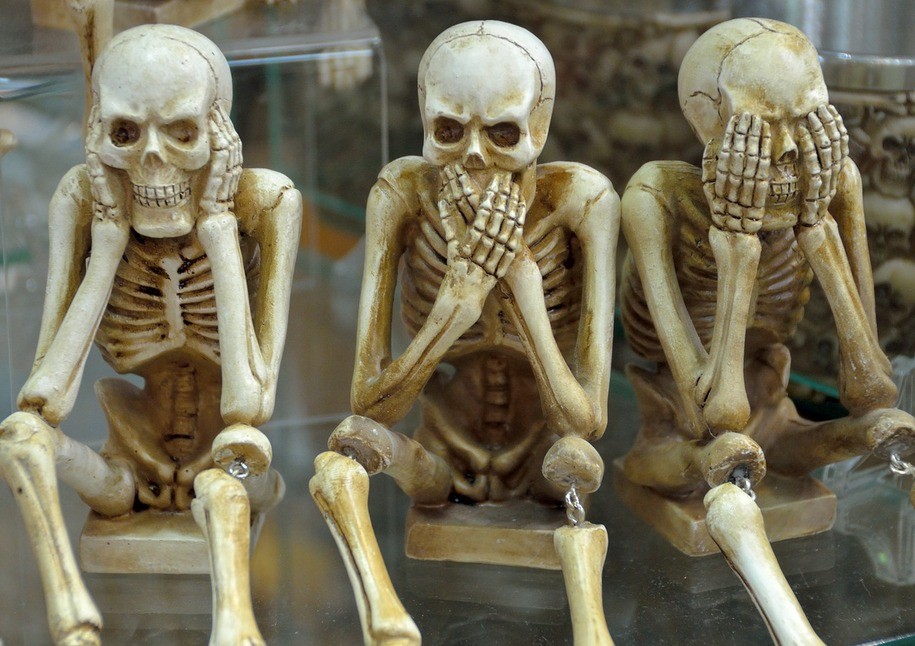Lifestyle
Embracing the Chills: Reflections on Fear and Creativity

This evening marks the eve of All Hallow’s Eve, traditionally referred to as Devil’s Night, particularly in Detroit, where the holiday carries a mix of celebration and caution. While some have rebranded it as Angel’s Night, the spirit of the occasion often invites contemplation on what truly incites fear and unease in society today.
Exploring Modern Fears Beyond the Supernatural
As we engage with the festive atmosphere, it is crucial to remember that the most chilling realities might not stem from the supernatural. Instead, we face concerns such as political turmoil, environmental crises, and social injustices that provoke genuine anxiety. A politician elected to a second, non-consecutive term, the rising levels of carbon dioxide in the atmosphere threatening climate stability, or the suspension of critical food aid to vulnerable populations—these issues can evoke a far more profound dread than any haunted tale.
Consider the implications of armed agents on our streets, the devastation wrought by natural disasters, or the emotional toll of strained relationships. These elements can chill the heart far more than traditional Halloween frights. The question remains: how do we convey these feelings through our writing? What atmosphere do we create to inspire the intended emotional response in our readers?
Channeling Atmosphere and Emotion in Writing
Whether you aim to instill an existential dread or evoke the thrill of a cozy mystery, it is vital to tap into the full spectrum of human emotions. What response do you seek? Should your readers feel compelled to check the locks on their doors or reflect on the sadness of a fading relationship? The essence of effective storytelling lies in crafting an environment that enhances these emotions.
Moreover, the monsters within our narratives often reflect deeper truths about humanity. In Western horror, figures such as vampires and werewolves embody altered versions of ourselves, while Japanese horror presents colossal beasts, often mutated by societal fears, such as nuclear disaster. Both approaches reveal that the most frightening threats may wear a human face.
As I delve into Franz Kafka’s work, particularly “The Trial,” I am struck by the absurdity faced by the protagonist, Josef K. His experiences with seemingly polite yet absurd authorities provide a mirror to today’s societal issues, where individuals often encounter bureaucratic and systemic injustices. Kafka’s portrayal of a bizarre yet mundane nightmare feels eerily relevant in the context of contemporary fears.
As we near the end of October, many writers find this month inspirational for embarking on new projects. November, historically a time for beginning novels, invites both reflection and ambition. Whether you plan to share your writing goals or simply embark on a personal journey, the community welcomes your insights and experiences.
As the evening unfolds, let us embrace the atmosphere of this haunting season. Create a scene that resonates with chilling emotions or alternatively, explore themes of warmth and connection. The choice is yours, and the canvas is wide open.
In the spirit of creativity, you are encouraged to share your thoughts on writing goals for the upcoming month. If there is enough interest, we could even track progress collectively in our community diaries. After all, every writer’s journey is unique, and sharing can inspire others.
Whether you choose to write about ghosts, societal fears, or the complexities of human relationships, let the essence of the season guide your creativity. Engage your senses, provoke thought, and most importantly, embrace the chills that inspire your storytelling.
-

 Science2 weeks ago
Science2 weeks agoIROS 2025 to Showcase Cutting-Edge Robotics Innovations in China
-

 Politics2 weeks ago
Politics2 weeks agoJudge Considers Dismissal of Chelsea Housing Case Citing AI Flaws
-

 World2 weeks ago
World2 weeks agoBravo Company Veterans Honored with Bronze Medals After 56 Years
-

 Lifestyle2 weeks ago
Lifestyle2 weeks agoStone Island’s Logo Worn by Extremists Sparks Brand Dilemma
-

 Health2 weeks ago
Health2 weeks agoStartup Liberate Bio Secures $31 Million for Next-Gen Therapies
-

 Top Stories2 weeks ago
Top Stories2 weeks agoIndonesia Suspends 27,000 Bank Accounts in Online Gambling Crackdown
-

 Health2 weeks ago
Health2 weeks agoTop Hyaluronic Acid Serums for Radiant Skin in 2025
-

 Sports2 weeks ago
Sports2 weeks agoMel Kiper Jr. Reveals Top 25 Prospects for 2026 NFL Draft
-

 World2 weeks ago
World2 weeks agoHoneywell Predicts Record Demand for Business Jets Over Next Decade
-

 Lifestyle2 weeks ago
Lifestyle2 weeks agoMary Morgan Jackson Crowned Little Miss National Peanut Festival 2025
-

 Sports2 weeks ago
Sports2 weeks agoYamamoto’s Mastery Leads Dodgers to 5-1 Victory in NLCS Game 2
-

 Science2 weeks ago
Science2 weeks agoArizona State University Transforms Programming Education Approach








